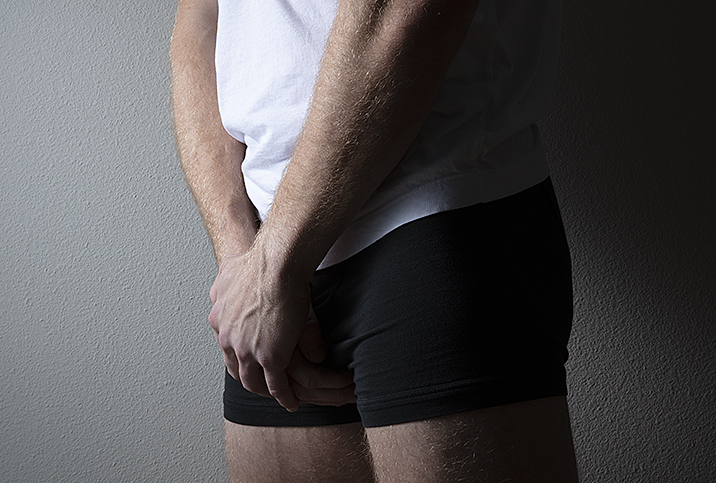How Chlamydia Can Cause ED

Chlamydia is a sexually transmitted disease (STD) that affects millions of people worldwide. According to the Centers for Disease Control and Prevention (CDC), it’s one of the most common STDs in the United States, with an estimated 4 million infections in 2018 alone.
Symptoms & long-term effects
While chlamydia is regarded as one of the more benign and easily treatable STDs, that doesn’t mean the condition isn’t without potential enduring and persistent health complications. One problem chlamydia can cause, or at least exacerbate, is erectile dysfunction (ED) in men.
It’s important to note you can have chlamydia for several weeks before showing any symptoms at all. Additionally, physical damage can occur long before you’re aware you’ve been infected. This means that it’s crucial to get tested immediately if you suspect you may have been exposed to chlamydia, so you can start treatment as soon as possible.
Early symptoms of chlamydia in males include:
- Discharge from the penis
- Burning or painful sensations when urinating
- Pain and swelling in the testicles
Chlamydia presents the potential for many long-term health consequences for men. However, for males who have female partners, it’s important to know that women are extremely susceptible to some serious, even life-threatening physical complications as a result of chlamydia infections.
For starters, females who have had chlamydia are more susceptible to pelvic inflammatory disease (PID), a condition that can have serious health consequences, including infertility. Frighteningly, PID can even cause ectopic pregnancy, a potentially fatal condition in which the fetus develops outside the uterus.
In short, if you test positive for chlamydia, contact all of your recent sex partners without delay, especially women.
Chlamydia & ED
The potential consequences of chlamydia infection for men may not be as serious, but they can nonetheless be personally devastating.
Chlamydia can result in erectile dysfunction if it reaches a man’s prostate gland, infects it and causes prostatitis, or swelling of the prostate. This swelling can have a couple of adverse outcomes that can result in ED. For one, it can restrict the blood flow to the penis. Also, the inflammation caused by the chlamydia infection can cause pain when the man’s penis gets erect.
For men who already struggle with erectile dysfunction, it’s perhaps even more critical to avoid any chance of developing prostatitis. Numerous studies show ED affects up to roughly 48 percent of men who suffer from chronic prostatitis.
Another interesting link between ED and chlamydia is shown by a study that suggests ED may indirectly increase the risk of chlamydia or other STDs for some men. Researchers found that men who were prescribed ED medications had a higher likelihood of contracting an STD, likely because they were having more sex and risking greater exposure.
The bottom line
Both ED and chlamydia are treatable conditions. However, taking unnecessary risks with sexual partners, or ignoring symptoms or delaying treatment for chlamydia, can exacerbate either or both of these conditions. Use protection every time you have sex, and be open and honest with partners if you are diagnosed with chlamydia.
A short-term inconvenience can turn into a long-term chronic problem if it’s ignored for too long.


















